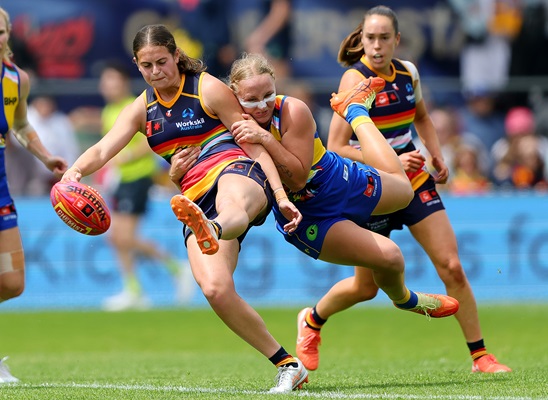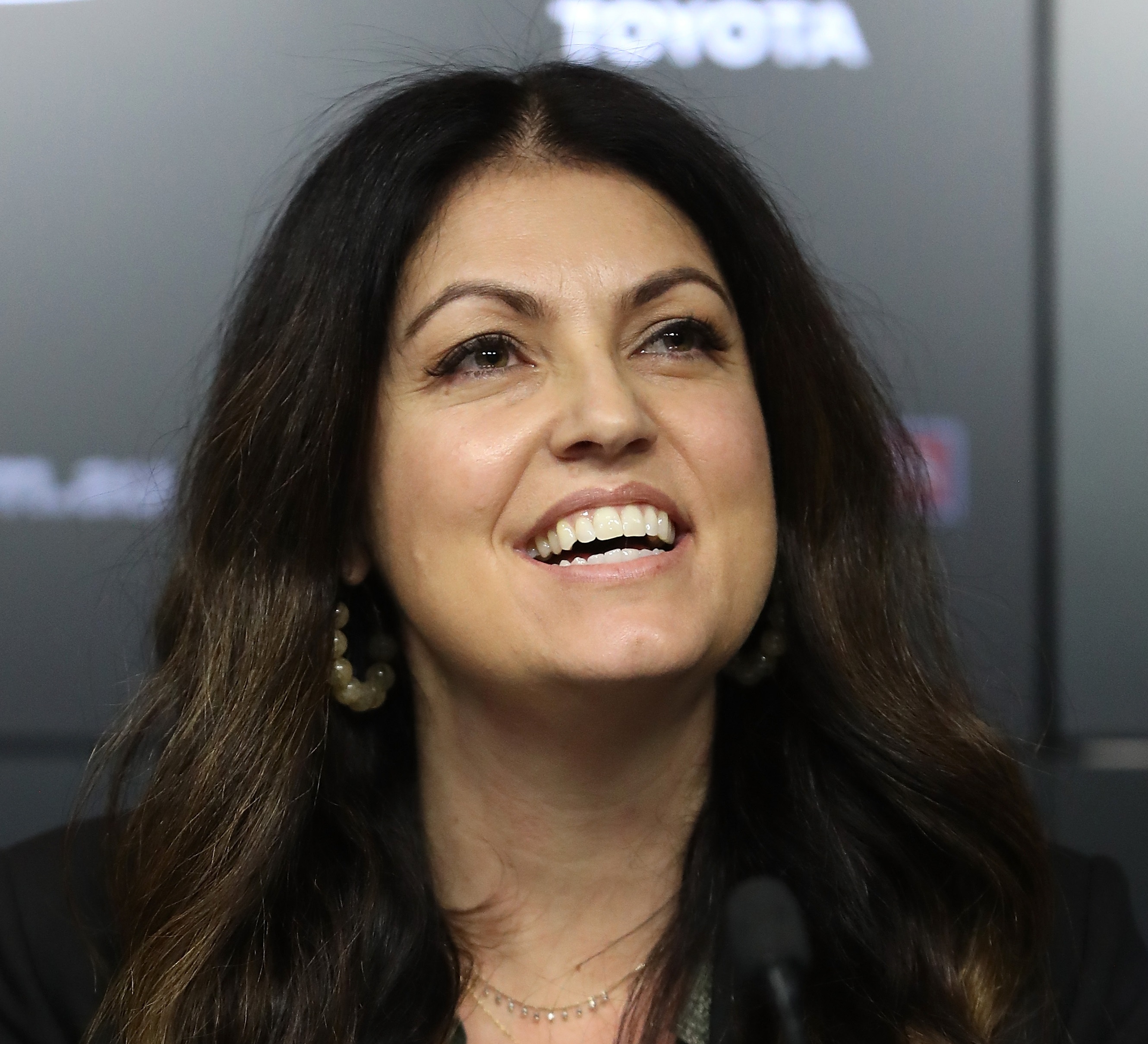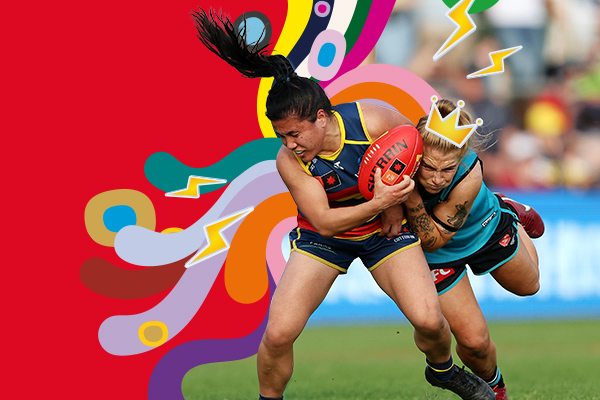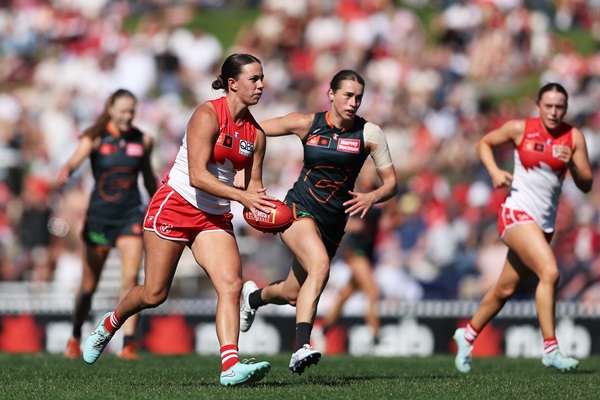-
Medibank is a proud health partner and superfan of the AFLW.
We often picture mental fitness as an individual pursuit: meditation, journaling, a solitary run, or a quiet moment with a book. But while these activities matter, Dr Kate Hall, the AFL’s Head of Mental Health and Wellbeing, says that picture is missing an important element, your teammates.
“Mental fitness is not just about your own mind,” she explains. “It’s really about the people you have around you. Humans gain strength and resilience from their relationships. The collective is what bolsters everything.”
A clinical psychologist with more than 20 years’ experience across sport and academia, Dr Kate Hall also encourages people to think about mental fitness as something to build every day, not just when things go wrong. “It’s an incredibly precious resource,” she says. “It takes work to cultivate and grow, and we have to be purposeful about that.”
Play offence not defence
Dr Hall believes progress has come a long way, but mental health is still too often treated as a backup plan. “We would never just rely on our physical health to take care of itself,” she says. “But with mental health, we think it’ll be all right, until it’s not.”
That’s why she prefers the language of mental fitness. It reframes the conversation from something passive to something you actively train. Just as an athlete strengthens their body, anyone can work towards strengthening their mind through deliberate practice.
The buckets we need to fill
When thinking about mental fitness, Dr Hall talks about “buckets” we all need to keep topped up:
Physical health: The basics - good nutrition, quality sleep, physical activity and balance. “The two (mental and physical health) aren’t ever separated for us,” Dr Hall notes.
Social health: Surrounding yourself with people who support, challenge and mentor you.
Learning and growth: Keeping the mind active and intentional. This might mean practising meditation, listening to podcasts, reading or working with a psychologist.
Emotional health: Growing a solid repertoire of helpful coping skills to regulate emotions and manage stress.
Contribution: Giving back to teammates, family or community. Dr Hall calls it a “sure-fire way of sustaining that sense of contributing to something much bigger than just you.”
Team selection
It’s important to note, that mental fitness isn’t a solo sport. “The advice we often give athletes is to really choose who your team is,” says Dr Hall. “Make sure they’re high-quality relationships, not just a large number of connections,” she says.
This isn’t advice she only offers to athletes. Your “team” might include friends, family, mentors, colleagues or professionals. They should support you, challenge you and help you grow. Mental fitness isn’t just about how you sit with your thoughts, it’s also about who’s sitting beside you.
From sidelines to shared responsibility
The AFL and AFLW are working to normalise mental health conversations, embedding them as firmly as pre-game stretches. Leaders are trained in mental health first aid, and wellbeing goals are tracked alongside performance.
But the real transformation, Dr Hall says, happens when groups, not just individuals, take ownership. “High-functioning teams have really strong, shared cultures of responsibility. It’s not just one person working on their own, but recognising mental fitness as a collective asset we can all draw on.”
She adds that while communities know how to show up for physical illness, mental health is different. “When it’s a physical health challenge, people bring meals, offer support. But when it’s mental health, people may back off. That speaks to stigma, we’re still not on equal footing. ”
You’re in the driver’s seat
Life is a journey, and we’re all on the bus together. People hop on and off, teammates, friends, mentors, but you’re the one in the driver’s seat. Dr Hall reminds us that while others may influence the ride, it’s up to you to steer.
She uses the same metaphor in training minds not to wander, an important mental fitness tool that can be strengthened with practice. “Notice when your thoughts drift to past regrets or future worries and gently steer them back to the present.” This, she says, can be practised anywhere, from lining up for a goal to doing the grocery shop.
Rest is part of the game plan
Rest is also central to our mental fitness. Dr Hall encourages people to think less about time management and more about “energy management.” Short, regular breaks are as important as long stretches of recovery. And “sleep is the foundation of all mental fitness,” she says.
No one wins alone
Mental fitness fuels our ability to cope with challenges, contribute to others, and thrive in work, play and life. But at the heart of it is also connection. In team sport, no one expects a player to win a game alone, and the same is true of mental fitness. Yes, it requires reflection, rest, and individual practice, but strength also grows through our family, friends, colleagues and mentors - the teammates who help carry us forward. “If we’ve got a ready support network to help see us through difficult times, and enough resource to support others when they’re struggling, then we all benefit,” Dr Hall says. “Mental fitness isn’t just for athletes, it’s for all of us. It’s what lets us show up, for ourselves and for each other.”
READ MORE: Bonnie Toogood's mental fitness toolkit
How to build your mental fitness


Dr Kate Hall
Dr Kate Hall is Head of Mental Health and Wellbeing at the AFL. She holds a Doctorate in Clinical Psychology, is a Clinical Psychologist and a senior academic. Her role champions wellbeing cultures and mentally fit healthy systems across the AFL/W to support every player to thrive in football and life.

Medibank. Superfans of the AFLW.
Everybody deserves the chance to reach their full potential. That’s why we’ve joined forces with the AFLW as an Official Health Partner, to help tackle the health barriers facing women in sport.


